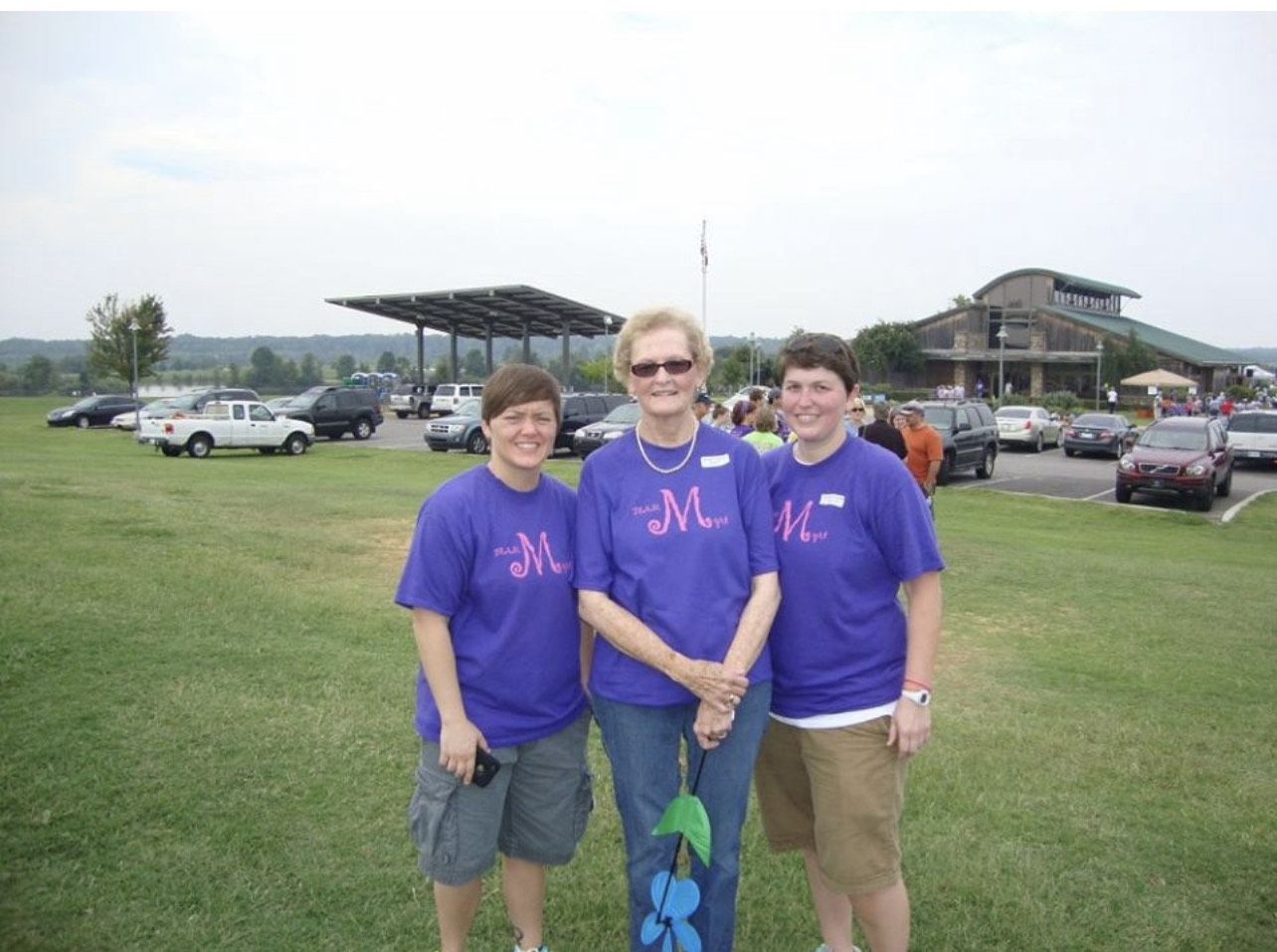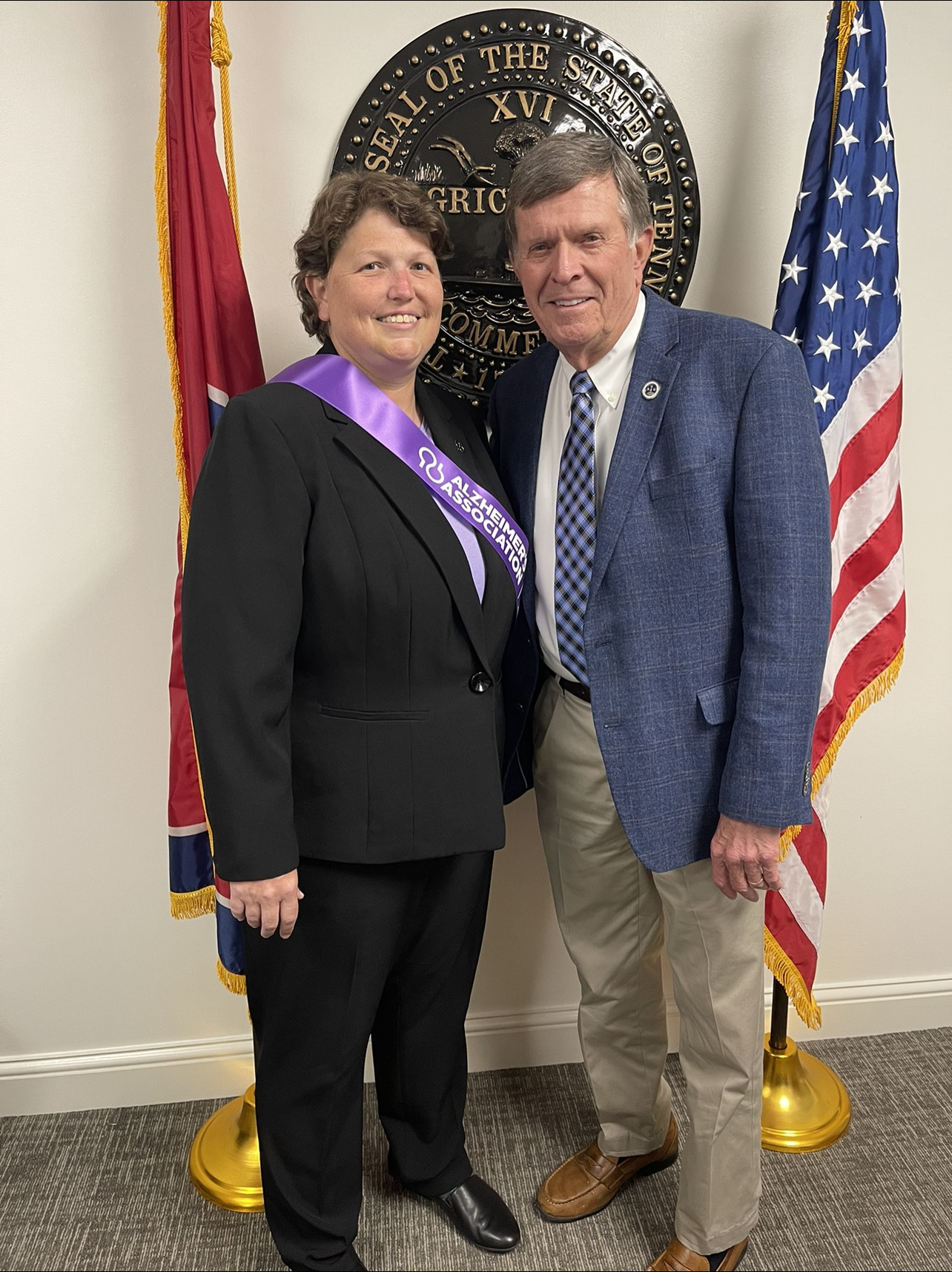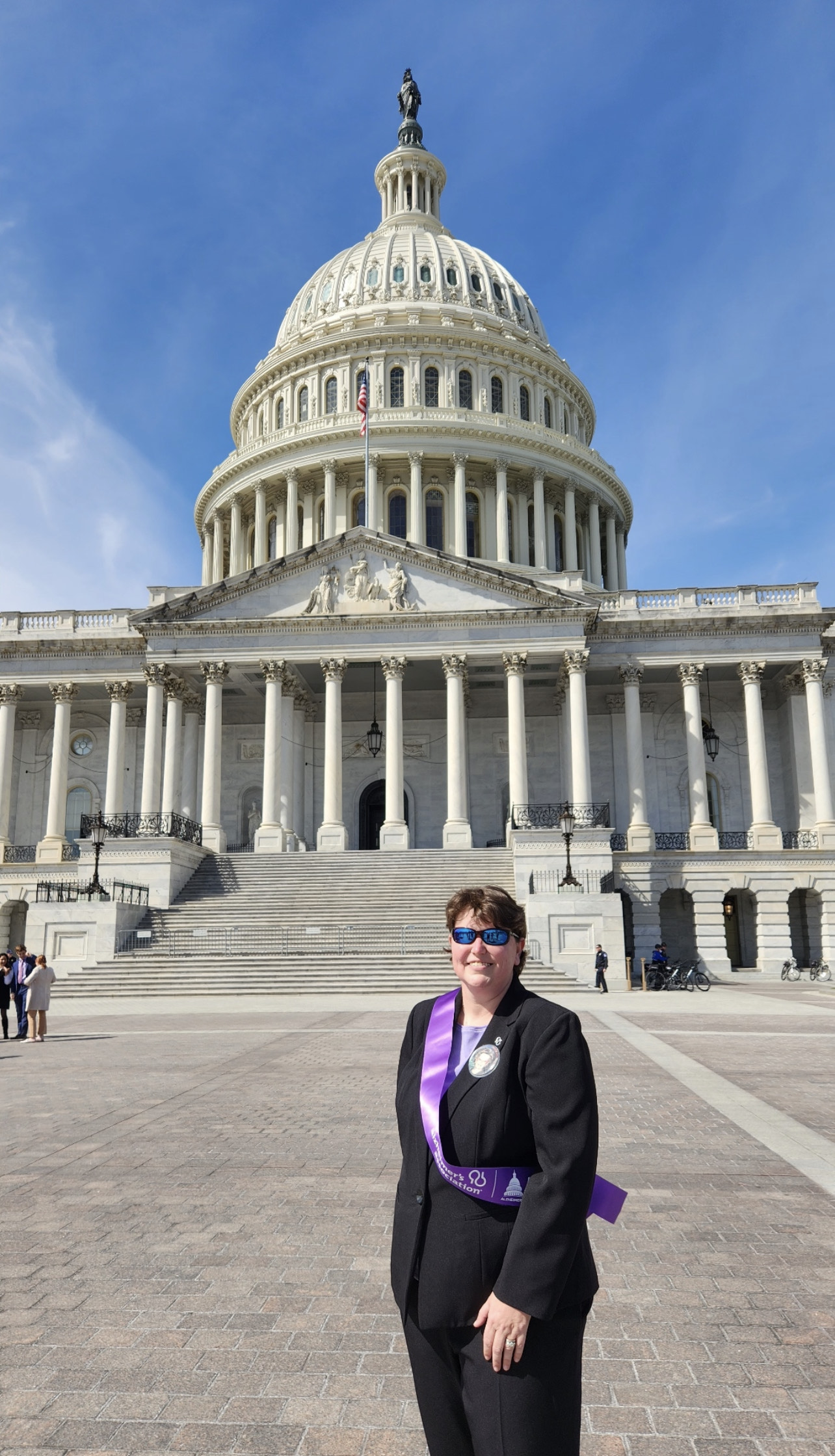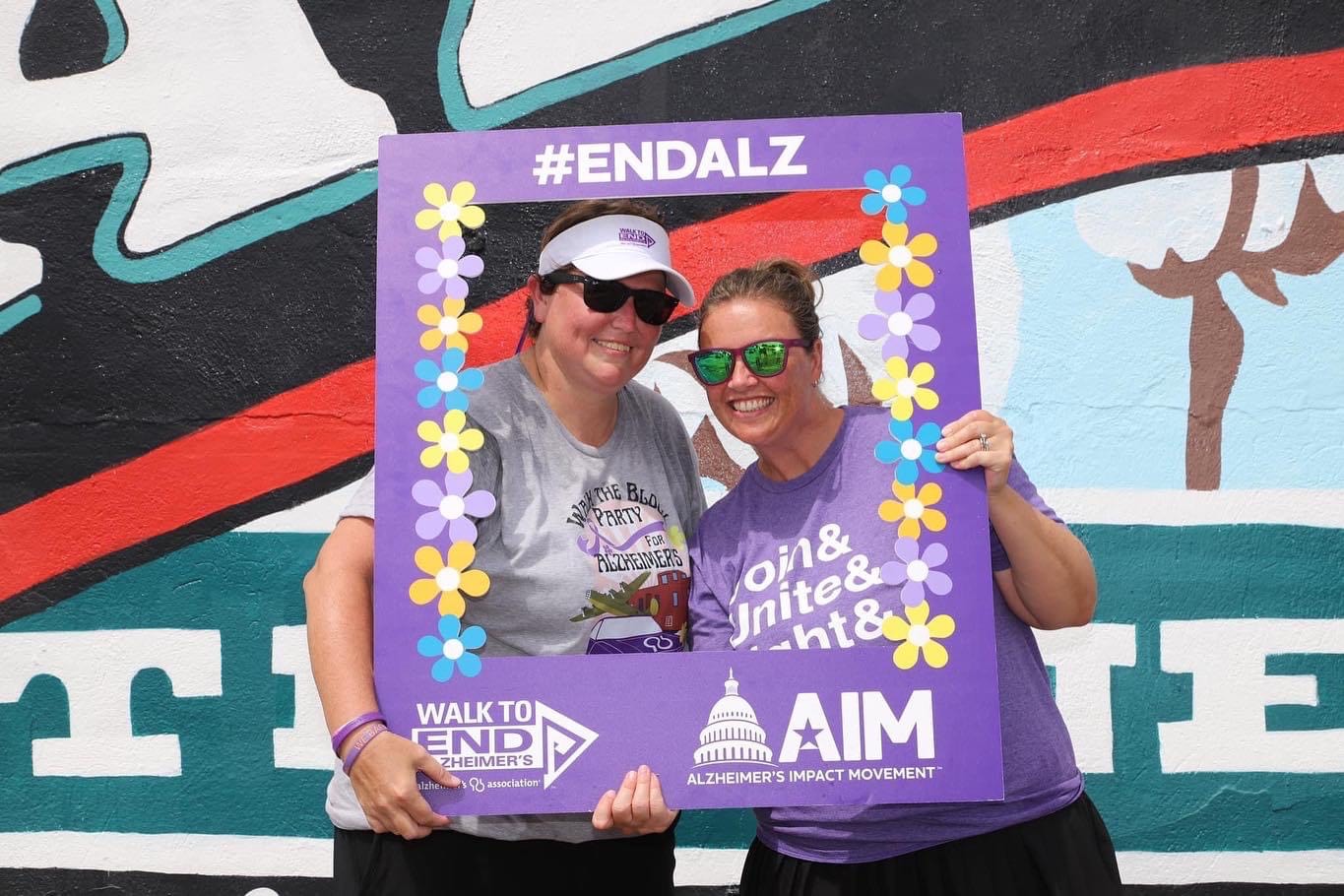Each month, we’re featuring an advocate who engages with policymakers to ensure priorities that improve the lives of people impacted by Alzheimer’s and all other dementia remain top-of-mind in Congress.
In 2005, Amy Elder graduated college and moved home to her small town of Halls, Tennessee. She bought the house next door to her aunt Myrtle, or “Myrt.” Amy and Myrt were excited about the years ahead, looking forward to spending more time with each other and going on weekend trips together. On May 9, 2005, about a month after Amy had moved home, Myrt was diagnosed with Alzheimer’s disease.
Myrt had been running a family flower shop with her brother, but when she was no longer able to be at work every day, Amy left her job to come back to the family business. She helped care for her aunt Myrt, who was around family throughout her time living with Alzheimer’s.
“She and I were very close. She helped raise me,” says Amy.
After Myrt’s diagnosis, Amy began researching and learning more about Alzheimer’s. “I was pretty young then, but I started just Googling everything I could find about how to help her through the disease and what to expect. I ran across the Alzheimer’s Association,” said Amy.
“Both of our birthdays are in September, and I found a [Walk to End Alzheimer’s] in Memphis,” Amy continued. “For my birthday, I asked my family to not give me birthday presents and just make a donation. I took my aunt and probably 30 to 40 people, family and friends, to the Walk in Memphis.”

Since then, Amy has lost track of how many Walks she’s participated in. “15 or 20?” she guessed. “I go to Memphis or Jackson, and I've actually been to the Nashville one.”
For the past few years, Amy has been organizing a local event in her hometown. “Year one, I think I had 34 people sign in,” said Amy. “Year two, we bumped it up and tried to do better, and we had like 90. But this year, I had more than 241 [participants]. Unfortunately the weather was terrible, but nobody left. We still had a great day. I think we're going to raise probably $20,000 when it's all said and done. And I'm in a one red light town.”

About four years ago, Amy got involved in AIM advocacy. While she was teaching high school, one of her students, who was also a junior bull rider, asked if he could help her with her fight against Alzheimer’s. “I asked him why, and he said, ‘Well at all these rodeos, people know about breast cancer. They know about heart disease. But nobody knows about Alzheimer's.’ And so I thought [advocacy] was a great way to get somebody young involved,” said Amy. “He and I started going to Nashville [for State Advocacy Day].”
Earlier this year, Amy attended her very first AIM Advocacy Forum in Washington, D.C.
“When I got there it was pretty emotional. Because, personally, when I started volunteering, I had sort of set that as a goal to get to Washington for my aunt,” said Amy. “Whatever way it was, it didn't matter to me. I just wanted to get in the room.”
During the Forum, Amy met with her congressional offices and attended a Rally for Access to Alzheimer’s treatments outside the White House. “My aunt will be gone eight years in September. It’s very uplifting that we're in the treatment era. That's huge to me.” said Amy. “I would have given my house back if I could have bought that drug for her,” Amy continued. “That's how critical it is to me. It's personal.”

“I lived my whole life with her never having taken a day off. She never took a day off if she was tired, if she had worked, no matter what, she never took a day off from being the very best for me, she made sure I had everything I needed,” said Amy. “There's no way to repay her. So this is the only way that I could.”
Furthering her involvement in Alzheimer’s advocacy, Amy has recently taken on the role of ambassador to Rep. David Kustoff (TN-08). “I'm not going away. I gave my aunt my word, point blank. Your fight is our fight. I told her I'd never give up. I will keep fighting this so that nobody has to do this again.”
Learn how you can get involved and become an advocate like Amy.
Register today for the Walk to End Alzheimer’s, the world’s largest fundraiser to fight the disease.
